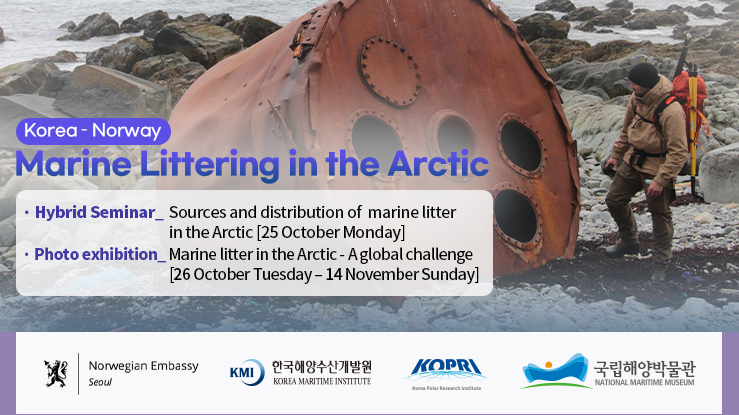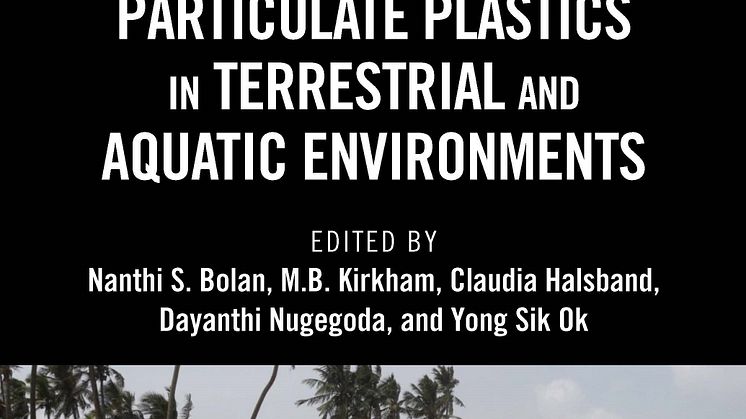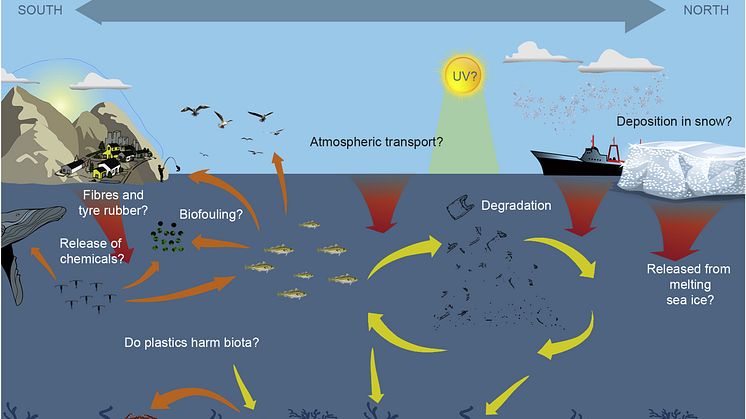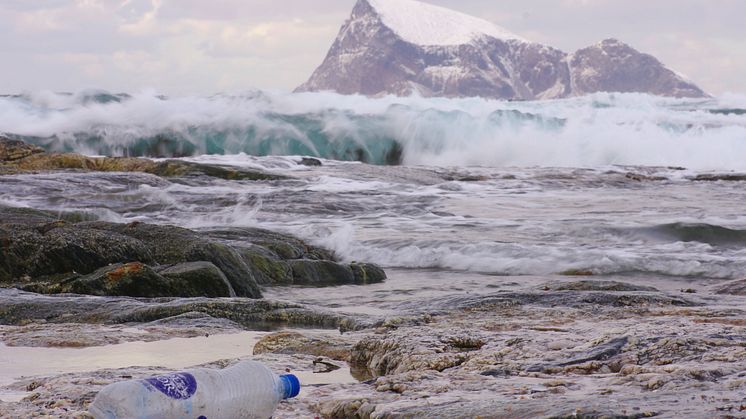
Nyhet -
Akvaplan-niva participates in Korea-Norway event on marine litter in the Arctic
Claudia Halsband from Akvaplan-niva participates in joint Korea-Norway seminar and photo exhibition om marine litter in the Arctic. The background for this hybrid event is that the Arctic is considered a pristine area, but as everywhere else in the world, the problem of marine littering is getting increasingly visible and poses a threat to marine and coastal ecosystems in the region. We need to understand more about Arctic- specific marine littering sources, including the pathways and distribution, and how they affect Arctic ecosystems to reverse marine pollution and protect the marine environment.
The Royal Norwegian Embassy in Seoul, Korea Maritime Institute (KMI), Korea Polar Research institute (KOPRI), and Korea National Maritime Museum (KNMM), aim to increase awareness about the problem of marine pollution and communicate research findings on how affects the Arctic ecosystems by jointly hosting a hybrid seminar and a photo exhibition in Busan, the biggest ocean city in the Republic of Korea. Representatives from industry, government, and research as well as students are invited to discuss what measures can be implemented to combat the global challenge that marine pollution poses.
Program below.



